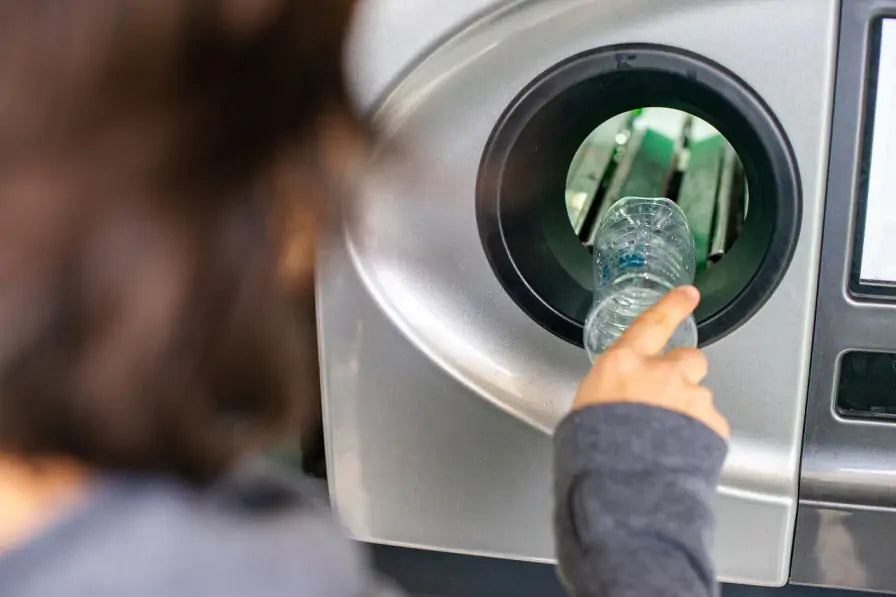Your basket is currently empty.
Shop NowIceland Trial a Reverse Vending Machine in Fulham

Iceland Trial a Reverse Vending Machine in Fulham
Iceland has become the first UK supermarket to install a reverse vending machine in one of its stores in a bid to tackle the problem of plastic pollution. The supermarket chain is trialling the machine in its Fulham store for 6 months.
Customers will be able to recycle any plastic drinks bottles and they’ll get a 10p voucher to spend in store for every bottle they recycle.
Iceland’s Managing Director said that they’re the first supermarket to take action after the government announced that they are looking into proposals for the introduction of a deposit return scheme.

We go through around 13 billion plastic drinks bottles every year; and more than 3 billion are incinerated, sent to landfill or discarded in our parks, on our streets, and our beaches.
As well as introducing the vending machines, Iceland has also pledged to eliminate plastic packaging from all of its own brand products by the end of 2023. Iceland say that they have a responsibility to tackle the plastic problem and to help customers to make a difference too.
Denmark, Sweden, and Germany all have successful deposit return schemes in place. Consumers pay a deposit upfront when they buy a drink which can range from 8p to 22p, then they get this back when they return the empty bottle. Retailers are then responsible for making sure they are recycled, and this has paid off in Germany, where the plastic recycling rate is a huge 97%.
How to use less plastic every day
- Avoid plastic packaging. Buy items packaged in glass or cardboard boxes instead. If less people buy plastic, manufacturers might take notice.
- Keep a reusable shopping bag in your car for when you go to the supermarket so you don’t end up buying extra plastic bags.
- Carry a reusable water bottle and avoid buying plastic bottles. Plastic water bottles are one of the most common items that wash up on beaches, so the less you buy, the less potential there is for them to be discarded where they shouldn’t be.
- Drinking straws are another item regularly found on beaches. They can only be used once and they aren’t necessary. If you do want to use one, invest in a reusable one.
- Wear clothing made from natural fibres instead of synthetic materials. Washing clothes causes fibres to come off, which often contain plastic particles especially if the clothing is made from polyester. These particles end up in our waterways, and eventually, our oceans.
- Avoid using single-use items wherever you can.
- Instead of dumping electronic items, why not recycle them, donate them to charity, or sell them if they’re in good condition?




